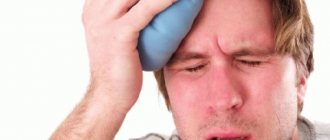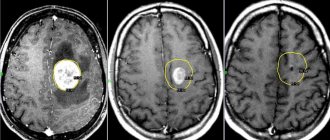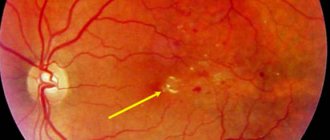Senile dementia in men - a common occurrence after 60 years. It is important to notice the first signs of how your loved one is changing. The sooner you consult a doctor with complaints, the faster the diagnosis will be made and the more effective the treatment will be. Honey offers modern methods of therapy that will help stop the process and improve the quality of life of patients.
What is dementia in older men and its causes
Dementia (dementia) is a disease characterized by a set of symptoms that appear as a result of pathological processes in the tissues of the brain. A person experiences memory deterioration, thinking disorders, and loss of habitual skills to such an extent that they complicate everyday life and normal work. The older a person is, the higher the risk of getting sick.
The cause of the disease can be:
- natural aging processes;
- pathologies of the thyroid gland;
- vascular disorders (ischemia, hypertension, atherosclerosis, etc.);
- neurological disorders (stroke, head injury);
- intoxication with alcohol or drugs;
- chronic poisoning with toxic substances;
- a brain tumor.
As can be seen from the reasons, dementia can be age-related and early - developing in young and middle age.
Senile dementia that is treatable
Unfortunately, many people believe that this disease cannot be cured with special medications. In their opinion, medications are not able to overcome age-related changes. Their opinion is wrong, because senile dementia is treatable. Moreover, it must be carried out without fail. How to save a loved one from dementia? The result of treatment in many cases depends on the type of senile dementia. First you need to establish the cause of this disease. Even if it arose as a result of an incurable disease, there is still a way out. To do this, you need to purchase special medications. Their activities are aimed at slowing down the development of negative manifestations of dementia. The patient's relatives should contact a psychiatrist. The responsibilities of this specialist include talking with the patient. After the conversation, he determines the presence of atrophic processes in the brain. In addition, the doctor may refer the patient for examinations in the form of a brain CT scan or electroencephalography. You need to know that only a specialist can make a diagnosis! It is necessary to consult a doctor immediately after the first signs of senile dementia appear. You cannot delay this, because at the final stage it is impossible to carry out effective treatment. Only symptomatic treatment improves the patient's fate.
In order for the result to pleasantly surprise relatives, they need to create a comfortable environment at home. A person with senile dementia should be involved in household chores. This is what can stop the development of dementia. When a patient experiences hallucinations or insomnia, a specialist prescribes special psychotropic drugs. In the early stages, the patient should use nootropics, and in the later stages, tranquilizers.
How it starts, main signs
The first signs appear after 60 years. There is an interesting feature - the risk of dementia doubles every 5 years. Among the elderly after 70 years, the proportion of patients is about 25%, after 80 years - every second one. It is important to pay attention to the early signs of dementia. After all, they are noticeable 5-10 years before the appearance of clear symptoms of the disease itself! If you learn to notice them, you can help your loved one in time.
Be sure to consult with your doctors if your loved one:
- O - forgets the day of the week, buy food, where he left his glasses.
- Has great difficulty remembering new information.
- Old, “dear to the heart” memories are easily recalled, but what happened yesterday is forgotten.
- Complains of absent-mindedness and fatigue.
- Speech becomes impoverished, forgets simple everyday words.
- Does not understand jokes and proverbs without prompting.
- Likes to tell the same stories and ask the same questions without delving into the interlocutor’s answer.
- He gets lost in a familiar place and doesn’t find his way home.
- Has a violation of planning and sound criticism: dresses inappropriately for the weather, goes outside in a dressing gown.
- Confused about money and unable to count change correctly in a store.
- Forgets to eat.
- He neglects changing clothes and wears the same clothes day after day.
- Laughter gives way to tears (weakness).
- Notices physical weakness due to forgetting to eat and not feeling thirsty.
Over time, a loss of interest occurs, and as a protective reaction of the body, there is a fear of everything new. 30% of sufferers experience mild symptoms of depression (insomnia, decreased or decreased appetite, anxiety). This allows you to suspect “something is wrong.” Further manifestations of depression become more severe. The person does not believe in the success of the treatment, is sad, often cries from the hopelessness of the situation, grief, and does not understand what is happening to him. At first, he denies all symptoms and explains them by “external circumstances.” It is important to know that with this combination of symptoms there is a high risk of suicide attempts.
Kinds
Dementia acts as an independent disease or accompanies others. There are several varieties:
- Alzheimer's disease. This is the most common form of dementia in men over 60 years of age. It is characterized by increasing forgetfulness of current affairs with retention of memory for ancient events. For a long time, the only symptom observed is forgetfulness.
- The vascular form is the second most common. Risk factors include smoking, male gender, high cholesterol. Such patients suffer from high blood pressure, coronary heart disease and diabetes. They often have a history of strokes, heart attacks, and changes in the retina of the eyes. Memory impairment is not as severe as in Alzheimer's disease. The onset of the disease is acute.
- Mixed form. It is more malignant - vascular disorders worsen the course of Alzheimer's disease.
Stages
This disease has several stages:
- The first is the most inconspicuous and, perhaps, the most insidious. It practically doesn't show up at all. If you are attentive to a man, you will notice that a person close to you begins to forget some things, behaves unusually, and sometimes cannot complete a simple assignment.
- The second is perhaps even heavier than the third. Precisely for relatives caring for them. The patient no longer remembers loved ones, does not always recognize himself in the mirror, leaves the apartment on his own or completely refuses to leave it. Periodically forgets where the toilet is in the apartment, how to brush his teeth, take a shower, and becomes more irritable. He ceases to be interested in books, cinema, television, theater, and concerts. Possible weight loss.
- The third stage is the last. As a rule, the patient stops getting out of bed, loses his appetite, and requires constant care.
Disease severity
Senile insanity is a serious mental disorder that requires immediate medical attention. Depending on the severity of clinical symptoms, the following forms of dementia are distinguished:
- Mild degree. There is a decrease in the patient's social activity - he does not want to communicate with loved ones and colleagues. The patient loses interest in the world around him, so the person gives up his favorite activities and hobbies. The disease leads to loss of professional skills. However, the ability for self-care remains, the patient is able to navigate his home.
- Moderate degree. It is typical to maintain self-care and hygiene skills, but patients need constant monitoring and prompting from relatives. The patient is not able to independently perform simple actions: open the door lock, turn on the stove, call the phone.
- Severe degree. The patient needs constant help from strangers - a sick person is not able to dress, wash, or eat on his own.
Dementia in men - how to help your husband or loved one
What to do if your husband has dementia? As a rule, wives notice the first signs. Because in old age, the children have long since moved away, but the spouse remains nearby.
Suspecting something was wrong:
- Contact the Leto clinic. Our specialists will assess the patient’s condition and develop the most effective tactics for further action.
- Go to your appointment already prepared - with examinations performed (MRI of the brain or X-ray of cerebral vessels).
- Decide to live together. At least starting from the second stage of the disease, this cannot be avoided.
- Closely monitor your medication intake. This will delay the onset of the next stage of the disease as much as possible.
- At least once every two years, be sure to visit the specialist you contacted to correct your treatment. This disease progresses, and the doses of the devices taken need to be increased.
- Don’t forget to give your man some easy tasks: sweep the floor, wash the dishes, dress or undress yourself, wash your face, brush your teeth. Sing old songs with him, turn on your favorite music, do some modeling or putting together puzzles.
- At all stages, provide emotional support and encouragement.
- Be prepared for the upcoming changes in life.
- Do not allow the use of a personal car, recommend public transport, take care of a personal driver.
- Come together or bring your husband to special support groups.
- Maintain hydration and remind your spouse about water.
- Monitor his overall physical health.
- Learn more about community support resources.
- If you have difficulties with simple household chores, explain slowly and show how to do it.
- Leave things in their original places.
- Read one book, watch a movie, and then discuss.
- If necessary, put reminders on sticky notes in capital letters.
- You're kidding! Humor prolongs and improves life.
Supporting a patient - what should relatives do?
In order to support the condition of a patient who has senile insanity, relatives must adhere to the following recommendations:
- create a favorable home atmosphere;
- it is necessary to conduct the conversation in a calm atmosphere;
- address the patient by name;
- when speaking, you should not use abstruse phrases or words; if necessary, repeat what the patient did not understand;
- constantly remember the old times;
- help with everyday activities, support him.
How you can help your doctor
For diagnosis, it is very important to know what happened and what happened. Stories from loved ones and colleagues will help with this. After all, it is necessary to understand whether a person had a rich vocabulary or not. There are very subtle differences between dementia and normal aging changes.
Before your visit, try to remember and write down some points related to your husband’s dementia.
- What prevents you from living with a person with dementia and what does he complain about?
- Note significant events that have occurred recently (retirement, children's weddings, birth of grandchildren, loss of loved ones).
- Make a list of all the medications the patient takes (medicines, vitamins, food supplements).
- Have you ever had dementia in your family?
- Previous operations, recent illnesses (take all the necessary papers).
- When the symptoms appeared, were they constant, what brought relief?
Help for pensioners with dementia in boarding houses "Longevity"
Caring for dementia patients at home is extremely difficult and requires a lot of effort and patience. Not everyone can bear all the hardships that fall on the shoulders of the relatives of the sick person, and conditions do not always allow for proper care and medical assistance at home, which is constantly needed. Often in such a situation, all family members are stressed, and their usual way of life is disrupted.
Private boarding houses for the care of the elderly “Longevity” are ready to provide assistance and care to people suffering from senile insanity at any stage of the disease, including bedridden patients. Here, a whole team of professionals works with patients, providing round-the-clock monitoring and care, as well as the necessary treatment, diet and psychotherapy.
Cost of services
| CONSULTATIONS OF SPECIALISTS | |
| Initial consultation with a psychiatrist (60 min.) | 6,000 rub. |
| Repeated consultation | 5,000 rub. |
| Consultation with a psychiatrist-narcologist (60 min.) | 5,000 rub. |
| Consultation with a psychologist | 3,500 rub. |
| Consultation with Gromova E.V. (50 minutes) | 12,000 rub. |
| PSYCHOTHERAPY | |
| Psychotherapy (session) | 7,000 rub. |
| Psychotherapy (5 sessions) | 30,000 rub. |
| Psychotherapy (10 sessions) | 60,000 rub. |
| Group psychotherapy (3-7 people) | 3,500 rub. |
| Psychotherapy session with E.V. Gromova (50 minutes) | 12,000 rub. |
| TREATMENT IN A HOSPITAL | |
| Ward for 4 persons | 10,000 rub./day |
| Ward for 3 persons | 13,000 rub./day |
| Ward 1 bed VIP | 23,000 rub./day |
| Individual post | 5,000 rub. |
| PETE | 15,000 rub./day |
This list does not contain all prices for services provided by our clinic. The full price list can be found on the “Prices” , or by calling: 8(969)060-93-93. Initial consultation is FREE!
Treatment of dementia in men at the Leto clinic
As a rule, with age-related dementia you have to deal with several diseases, so the treatment plan is selected strictly individually. The therapeutic regimen takes into account measures aimed at treating the underlying disease and normalizing blood pressure. Particular emphasis is placed on improving cerebral circulation. With the development of psychotic disorders, antidepressants, antipsychotics, and anticonvulsants are indicated.
You need to understand that prescribed drugs only slow down the development of the disease. In most cases, a man with dementia will no longer go to work and will never be the same as he was before. But he will be able to take care of himself independently, he will understand where he is and who is next to him. This will change your life too. The sooner you start taking the medications, the faster the effect will be visible. Even at the advanced second stage, you can achieve good results only over a longer period. Much attention is paid to psychotherapy and training in nursing skills.
Are you facing dementia in older or middle-aged men? Just dial 8(969)060-93-93 .
We provide assistance both in the hospital and at home.
Disease prognosis
The life expectancy of patients with senile insanity is determined by the presence of concomitant pathologies, the general condition of the patient, his social activity, hereditary predisposition, the attitude of relatives, lifestyle and nutrition. On average, after developing symptoms of the disease, people live from 7 to 15 years, provided they receive the necessary medical care.
Senile marasmus is a pathological condition that develops in elderly patients against the background of organic brain damage. The disease gradually provokes the disintegration of a person’s personality and a decrease in cognitive functions. The pathology cannot be cured. However, timely therapy can slow down the death of neurons and stop the progression of senile insanity.









